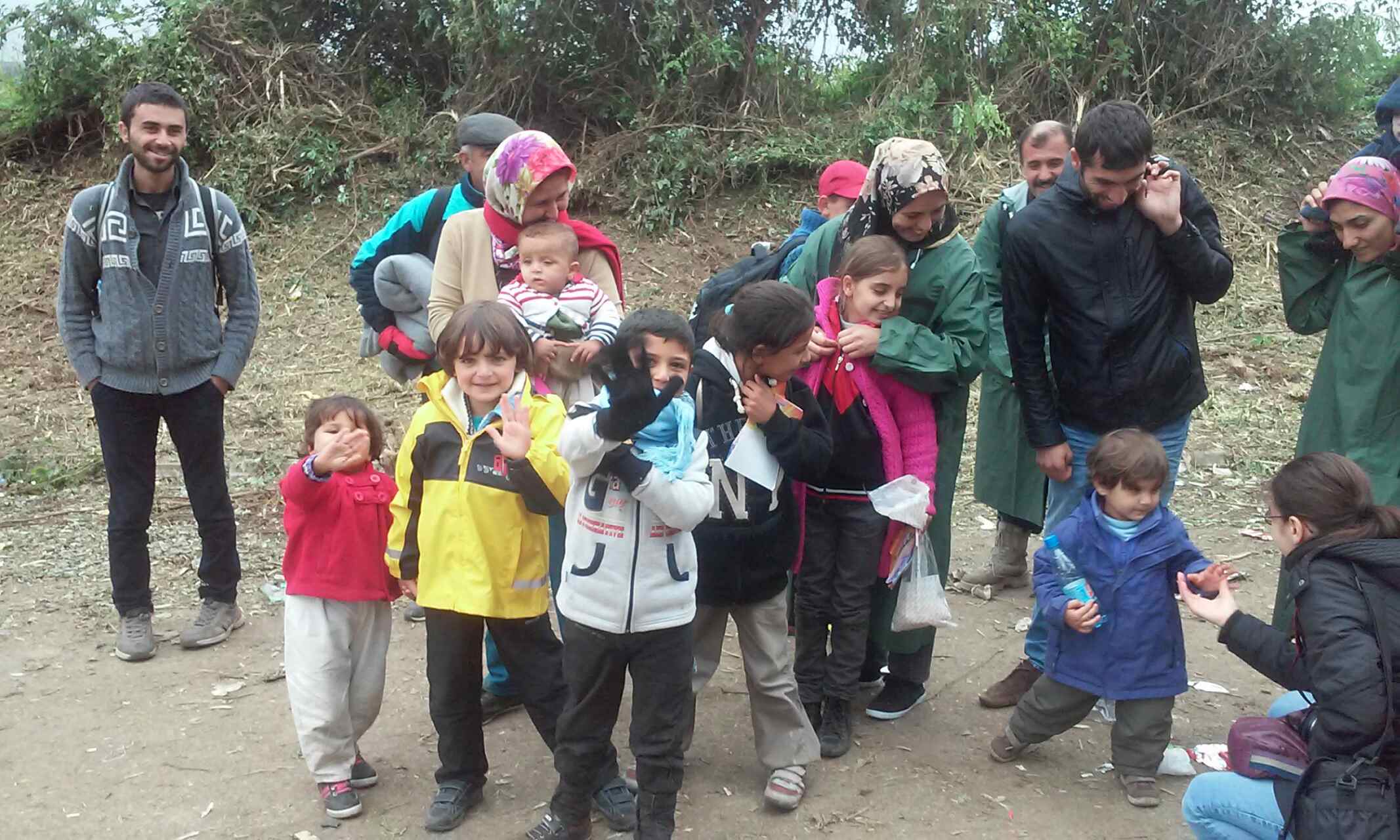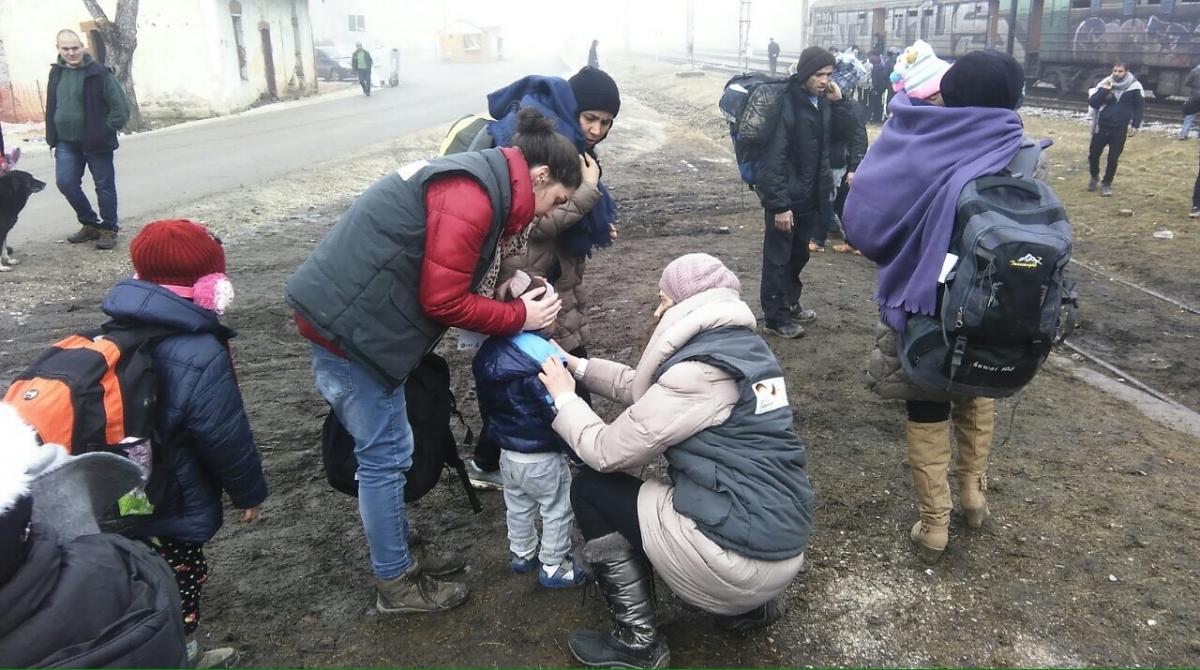Hotline: +381 61 63 84 071
Heroes, inspiration and motivation

Dedicated activists of mobile teams work 24/7 at the border with Macedonia and Croatia - in the towns of Preševo and Šid, as well as in Belgrade - to provide necessary assistance to people on the road - women, men and children fleeing the war, atrocities and poverty. Working in the field leaves a special mark on activists, so here are some of their thoughts regarding the demanding work they do daily.
Tanja Kuprešanin, mobile team member: It is really difficult to work with people who flee from that great evil, the war. Talking to people and hearing their repeated stories provides you an overview of the situation. Some of them have left their homes where they had everything, because ISIS killed a neighbour’s son, others left because bombing has arrived to their neighbourhood. You have to soak up all those stories and that can be harsh.
On the other hand, the road they've been passing is extremely hard, but I think nothing presents an obstacle to these people anymore; they are unaware of their unhappiness from all that running. I am amazed that they even operate at any level.
It is especially difficult now, due to border crossing problems; people have hopes and want to go to the West, to Germany, they believe it will be great there, they believe their human rights will be guaranteed, but that is kind of a false hope, especially now. I have overheard a discussion between Afghani boy and someone who is already in Germany and who said - Don't come here, it is terrible here, conditions are awful... that depends on the camp he ended up in.
There are a lot of anguished women. They are coming from a culture where a woman takes care of all the children, and a husband is the so-called pillar of the home, but only women carry children, feed them, dress them, and they have to do everything else men do - run, walk, carry bags. They are in a much harder position, not to mention women travelling alone whose husbands have stayed back. There are different stories.
My personal experience is that it is difficult, but in another way, amazingly beautiful, when you can help a person in any way - to comfort her when she is crying, hug her, talk to her, a simple relaxing exchange. Many people thanked me for just talking to them - you made my day, they say. But I really love my job and I will gladly be here as long as I can.
Hasan Ismael, Atina's cultural mediator: Every day we search for life in the universe, but we do not hear the voice of these people. When I am with them, I feel that I am a link between them and those who make decisions.
Marija Cvejić, coordinator of mobile teams in Preševo: Every day, we hear sad stories that touch us, but also motivate us to be there because we know that they need us. When I am in the field, I feel fulfilled and useful. Every day I find the purpose of our work in their smiles, warm look, sincere embrace and words of gratitude. For me, it is a great honour to help those who need help the most, and who is forgotten in the chaos of their journey.
Elia Megalaa Melik Reziek, Atina's cultural mediator: They are the source of our strength and happiness, success, and often defeat, but at the end of the day we always know that we did our best and that we helped many. That is the most important thing. As long as they are here, we will be as well. Despite all the obstacles.
Marija Pantelić, case manager: They are our heroes, inspiration and motivation. When we are with them, our problems become small and ridiculous. Because of them, we became better people! We thank them!

----
The mobile teams consist of psychologist/pedagogists, social workers and cultural mediators/translators. Mobile Teams provide outreach services to refugees who might not otherwise have access to the services, but also to those in asylum and transit centres when needed. This enables continuous presence in the areas where mobile/outreach services are most needed for refugees transiting through Serbia.












 FACEBOOK
FACEBOOK TWITTER
TWITTER YOUTUBE
YOUTUBE